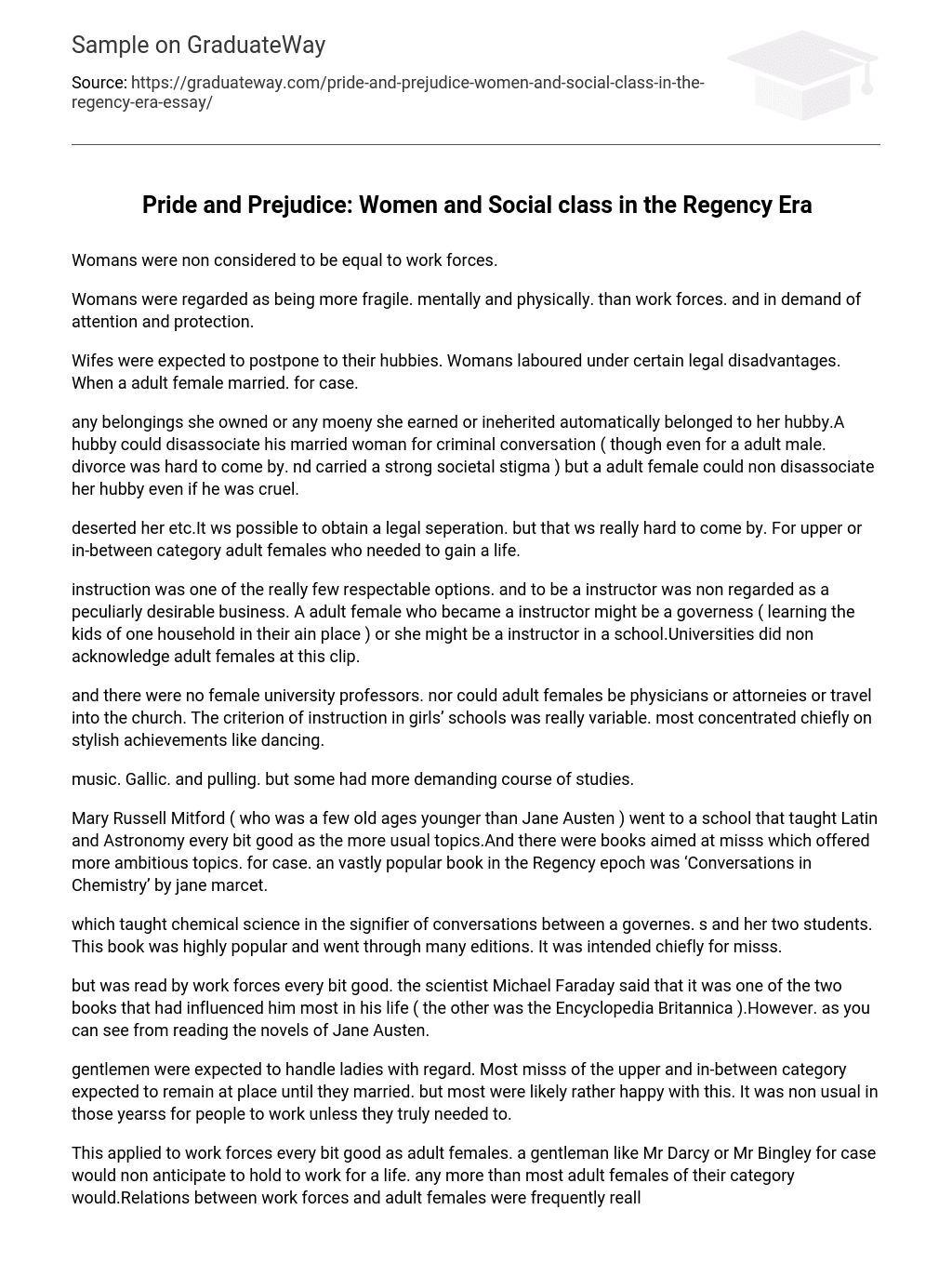Womans were non considered to be equal to work forces.
Womans were regarded as being more fragile. mentally and physically. than work forces. and in demand of attention and protection.
Wifes were expected to postpone to their hubbies. Womans laboured under certain legal disadvantages. When a adult female married. for case.
any belongings she owned or any moeny she earned or ineherited automatically belonged to her hubby.A hubby could disassociate his married woman for criminal conversation ( though even for a adult male. divorce was hard to come by. nd carried a strong societal stigma ) but a adult female could non disassociate her hubby even if he was cruel.
deserted her etc.It ws possible to obtain a legal seperation. but that ws really hard to come by. For upper or in-between category adult females who needed to gain a life.
instruction was one of the really few respectable options. and to be a instructor was non regarded as a peculiarly desirable business. A adult female who became a instructor might be a governess ( learning the kids of one household in their ain place ) or she might be a instructor in a school.Universities did non acknowledge adult females at this clip.
and there were no female university professors. nor could adult females be physicians or attorneies or travel into the church. The criterion of instruction in girls’ schools was really variable. most concentrated chiefly on stylish achievements like dancing.
music. Gallic. and pulling. but some had more demanding course of studies.
Mary Russell Mitford ( who was a few old ages younger than Jane Austen ) went to a school that taught Latin and Astronomy every bit good as the more usual topics.And there were books aimed at misss which offered more ambitious topics. for case. an vastly popular book in the Regency epoch was ‘Conversations in Chemistry’ by jane marcet.
which taught chemical science in the signifier of conversations between a governes. s and her two students. This book was highly popular and went through many editions. It was intended chiefly for misss.
but was read by work forces every bit good. the scientist Michael Faraday said that it was one of the two books that had influenced him most in his life ( the other was the Encyclopedia Britannica ).However. as you can see from reading the novels of Jane Austen.
gentlemen were expected to handle ladies with regard. Most misss of the upper and in-between category expected to remain at place until they married. but most were likely rather happy with this. It was non usual in those yearss for people to work unless they truly needed to.
This applied to work forces every bit good as adult females. a gentleman like Mr Darcy or Mr Bingley for case would non anticipate to hold to work for a life. any more than most adult females of their category would.Relations between work forces and adult females were frequently really good.
for case you can see from the letters of jane Austen that she had a batch of fondness for her brothers. and they for her. It was different for working category adult females of class. They.
like working category work forces. would be expected to work for a life from an early age. One of the commonest signifiers of employment for adult females in this period ws domestic service. Almost everyone who could afford it kept at least one retainer.
and a affluent household might hold tonss.One of the really few working category characters in Jane Austen is the housekeeper at Pemberley ( mr Darcy’s place ) who speaks about him so heartily when Elizabeth and her aunt and uncle visit the house. The housekeeper was the most of import female retainer in a big family. and she would be in charge of all the other retainers.
give the orders as to what they were to make. pull off the family accounts etc. It was a responsible and of import place. The fact that Elizabeth Bennet is impressed by the housekeeper’s good sentiment of Mr Darcy shows that a servant’s sentiment of her employer could be a valuable usher to his character.





